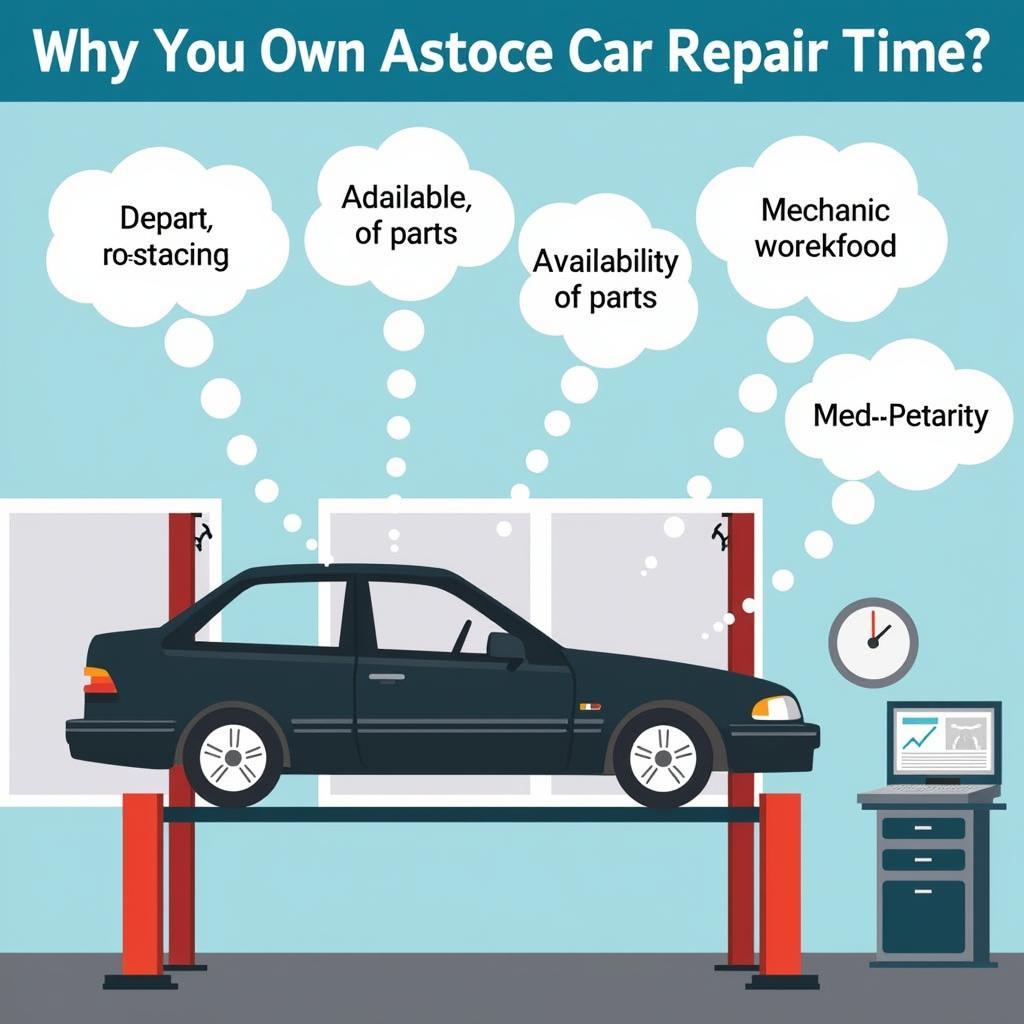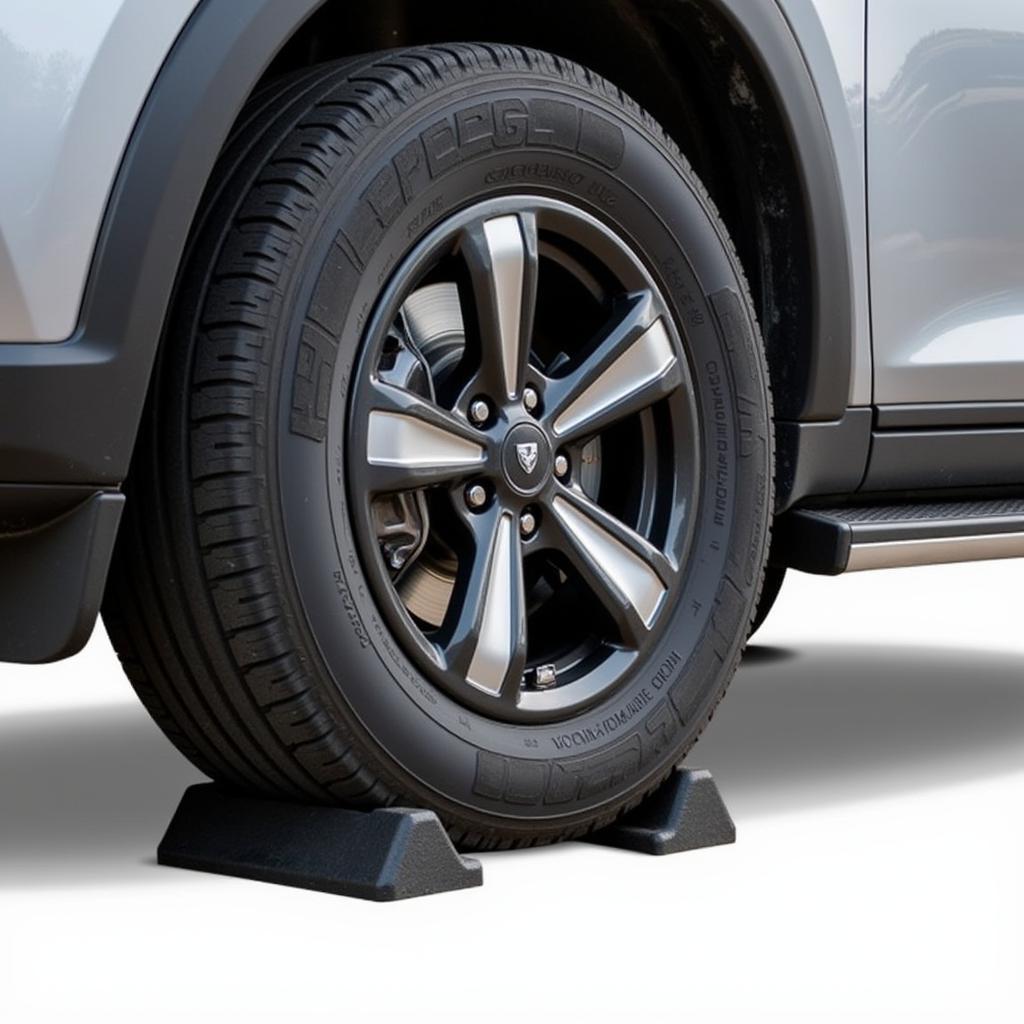Knowing how long your car will be in the shop is a major concern for most vehicle owners. Unfortunately, there’s no one-size-fits-all answer to “How Long Does It Take To Get Your Car Fixed?” The repair timeline depends on a multitude of factors, from the simplicity of an oil change to the complexity of a transmission overhaul.
 Factors influencing car repair time
Factors influencing car repair time
What Influences Car Repair Time?
Several key elements contribute to the overall repair duration. Understanding these can help you manage your expectations and plan accordingly. These factors include the nature of the repair, parts availability, and the shop’s schedule. For instance, a simple fix like fix rock chips car paint can be done relatively quickly.
The Complexity of the Repair
Is it a minor scratch, a significant dent, or internal engine damage? Naturally, more extensive damage requires more time to diagnose and repair. A simple oil change might take an hour, while a complete engine rebuild could take several days or even weeks.
Parts Availability
Sometimes, the necessary parts are readily available. Other times, they might need to be ordered from the manufacturer, which can add days or weeks to the repair timeline. Especially with older or less common vehicles, locating parts can become a challenge. Delays can also arise if specialized tools are needed for the specific repair.
The Shop’s Schedule
A busy shop with a backlog of repairs will naturally take longer than a less busy one. Holiday seasons or unexpected surges in repair requests can also impact the timeframe. Calling ahead and scheduling an appointment is always recommended.
How Can I Get an Estimate of the Repair Time?
The best way to determine the estimated repair time is to contact a reputable auto repair shop. Provide them with as much detail as possible about the issue you’re experiencing. A skilled technician will often be able to provide a preliminary estimate after an initial inspection.
Ask Specific Questions
Don’t hesitate to inquire about the estimated timeframe, potential parts delays, and the shop’s current workload. A clear understanding upfront can save you time and frustration down the line.
Tips for a Smoother Repair Process
-
Schedule an appointment: Walking in unannounced might result in longer wait times.
-
Be descriptive: The more information you provide about the problem, the quicker the diagnosis.
-
Maintain open communication: Stay in contact with the repair shop for updates and any unforeseen delays.
-
Choose a reputable shop: Recommendations and online reviews can help you find a trustworthy and efficient repair facility. Fixing rock chips on your car paint, for instance, requires a skilled professional, like those found at fix rock chips car paint.
“A thorough initial diagnosis is crucial,” says veteran automotive technician, Robert Johnson. “It sets the foundation for an efficient and accurate repair process, saving both time and money.” Another expert, Maria Sanchez, adds, “Building a good relationship with your mechanic can significantly improve communication and ensure a smoother repair experience.”
In conclusion, how long does it take to get your car fixed? It depends. However, by understanding the factors involved and communicating effectively with your chosen repair shop, you can manage expectations and minimize disruption. Contact AutoTipPro at +1 (641) 206-8880 or visit our office at 500 N St Mary’s St, San Antonio, TX 78205, United States for expert advice and assistance. We’re here to help you get back on the road as quickly and efficiently as possible.







Leave a Reply